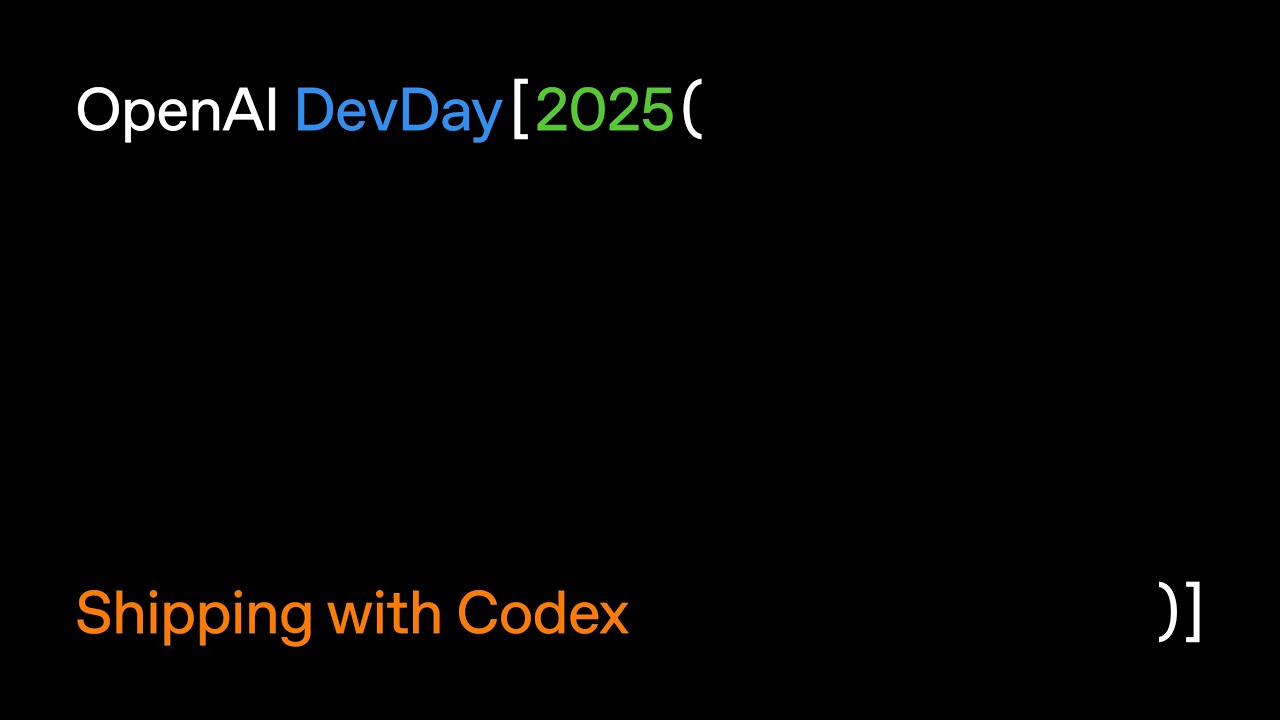The video showcases OpenAI’s Codex as a powerful AI coding assistant that accelerates software development through features like multimodal verification, long-term project support, and automated code reviews integrated into popular tools. By acting as a collaborative senior engineer, Codex enhances code quality and developer productivity, with continuous improvements making it increasingly user-friendly and effective across diverse workflows.
The video presents an in-depth overview of OpenAI’s Codex, an AI software engineer designed to assist developers by acting like a human teammate. Codex can be integrated seamlessly across various platforms including IDEs, terminals, GitHub, web, and mobile, providing a consistent and powerful coding assistant experience. Since its launch in August, Codex has seen exponential growth in usage, driven by continuous improvements such as the release of the GPT-5 Codex model, which is optimized for coding tasks, better adherence to code style, and enhanced reasoning capabilities. The team also revamped the user interface and approval modes to make the tool more user-friendly and safe by default, while enabling collaboration directly within popular IDEs like VS Code.
The video features engineers from OpenAI sharing real-world workflows demonstrating how Codex accelerates software development. Nacho Sto from the iOS team showcases how Codex helps with UI iteration for the ChatGPT iOS app by generating code, running tests, and even verifying UI visually through snapshot testing. This multimodal capability allows Codex to ensure the code it writes is not only functional but also visually accurate, significantly reducing the time spent on polishing and debugging. Nacho emphasizes how Codex complements test-driven development by running tests repeatedly until the code passes, effectively acting as a senior engineer who verifies its own work.
Feler, another engineer, highlights Codex’s ability to handle large and complex projects over extended periods. He demonstrates a marathon coding session where Codex worked for over seven hours, producing thousands of lines of code for a JSON parser project. Feler explains his workflow of using Codex to write detailed design documents, called exec plans, which guide the AI through complex feature implementations. This approach allows Codex to maintain context and progress on large tasks, making it possible to go from an initial idea to a fully tested pull request with minimal human intervention.
Daniel from the Codex team discusses the powerful code review capabilities integrated into GitHub and the CLI. Codex performs thorough and high-quality code reviews, identifying critical bugs that might otherwise be missed. Daniel demonstrates how developers can use simple slash commands to trigger reviews on their code before submitting pull requests, enabling an iterative process of review and fix until the code is robust. This fresh, unbiased review process helps maintain high code quality and confidence in shipping features, with many teams at OpenAI adopting it as a mandatory step in their development workflow.
In conclusion, the video highlights how Codex is transforming software engineering by enabling faster development cycles and higher confidence in code quality. With features like multimodal verification, long-running project support, and automated code reviews, Codex acts as a senior engineer and collaborator. OpenAI encourages developers to try Codex by installing it via npm and joining the community for support and collaboration. The ongoing updates and improvements promise an exciting future where AI-powered coding assistants become an integral part of everyday software development.
